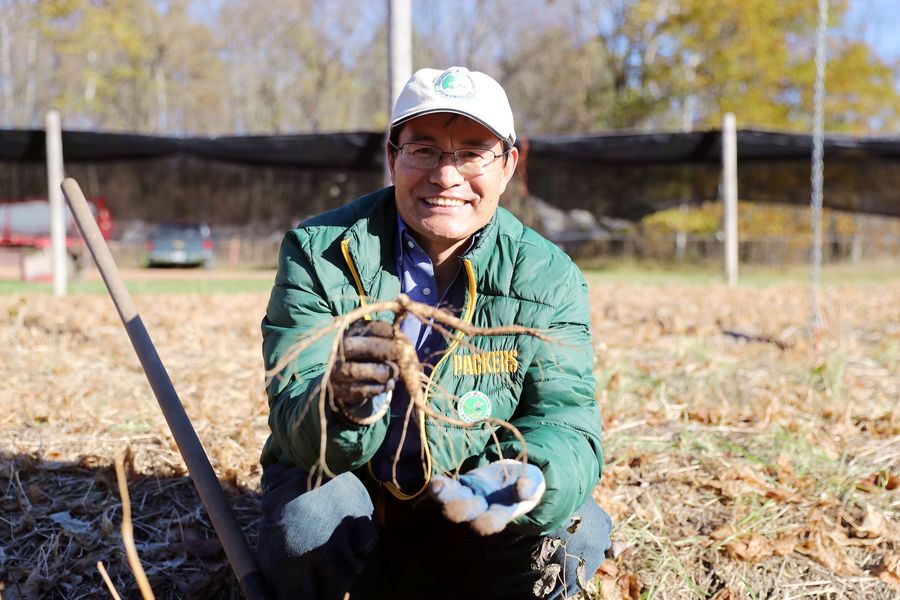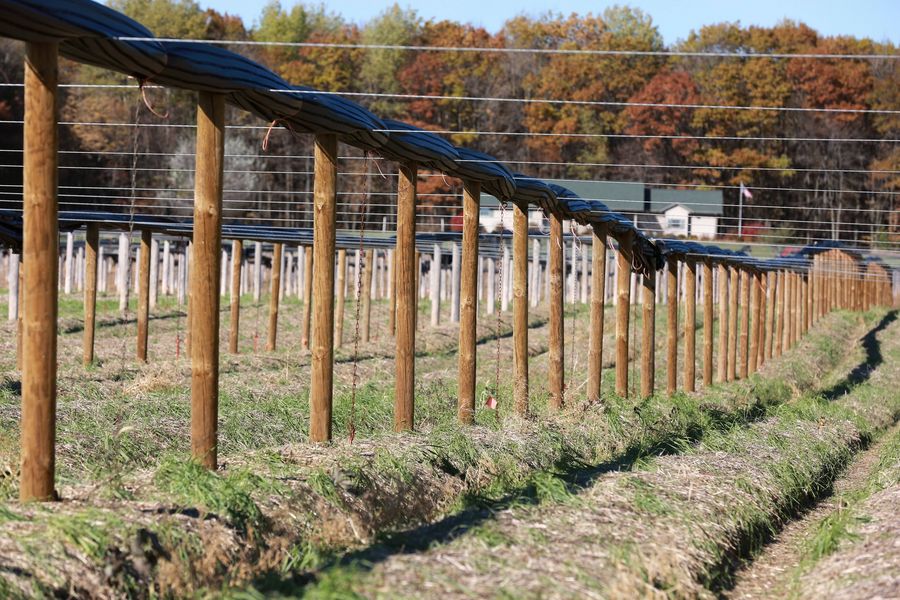
Jiang Mingtao, founder of Marathon Ginseng International Inc., shows how to dig ginseng at a ginseng farm in Marathon County, Wisconsin, the United States, Oct. 22, 2018. (Xinhua/Wang Ping)
"I don't hear any of our producers (ginseng farmers) saying what we want is another government subsidy ... What they really want is free trade. What they really want is free movement of their product," said Brad Karger, administrator of Marathon County in the U.S. state of Wisconsin.
WAUSAU, the United States, Aug. 15 (Xinhua) -- Wisconsin has a history of more than a hundred years in growing ginseng and is a major ginseng producer in the United States, accounting for 95 percent of the country's ginseng output.
China was once a top export market, that is, until two years ago.
The trade dispute between China and the United States has so far accumulated a retaliatory tariff of around 40 percent on Wisconsin ginseng exports to China. As a result, half of Wisconsin's ginseng output in 2018 is in storage now; normally the crop sells out by March.
China has a long history of using ginseng roots, and is a world leading ginseng consumption market. Wisconsin ginseng enjoyed a good reputation in China due to its unparalleled quality in terms of freshness, purity, and taste. The U.S. state once exported 70-80 percent of its ginseng products to China.
"I don't hear any of our producers (ginseng farmers) saying what we want is another government subsidy ... What they really want is free trade. What they really want is free movement of their product," Brad Karger, administrator of Marathon County in the U.S. state of Wisconsin, told Xinhua.
"They know that there is just one small piece of a broad mosaic in there in the relationship between the United States and China. But they're willing to see it through," he said. "It has to come to an end. We're gonna have a very damaged industry here in Marathon County."

Picture taken on Oct. 22, 2018 shows a ginseng farm in Marathon County, Wisconsin, the United States. (Xinhua/Wang Ping)
For Marathon County located in the central part of Wisconsin, ginseng production is a leading industry, and there are about 2,000 people out of its population of 150,000 engaged in ginseng growing and production. Ginseng exports are a 30-million-dollar industry for the county.
With 2019 harvest season coming in six weeks, things will get worse, and some ginseng farmers in the county have changed some of their land to other crops this year.
Karger does not think ginseng farmers can hold up much longer. "We're either going to put some subsidies or you are going to see some of the major producers may stay in, but the minor producers are going to drop away."
Karger told Xinhua that they are contacting members of congress to emphasize the importance of the ginseng industry. "We have a lot at risk here. We have to get this tariff issue straightened out."
Karger sees China as a trading partner, a friend and an ally. "We're in competition economically, but I think that a lot of the other stuff has been exaggerated."
"They (China) have a much different culture, a different political system, much different history than we have. And we shouldn't try to re-cast them in our mold. We should accept them as they are and ask them to accept us as we are and move forward in terms of being great trading partners and being partners in peace in the world."
Karger expects that the China-U.S. relationship will improve soon. "Nobody gains from the tariff issues," he said.
"We need to get past this," he said. "We need to have an environment back to free trade."



